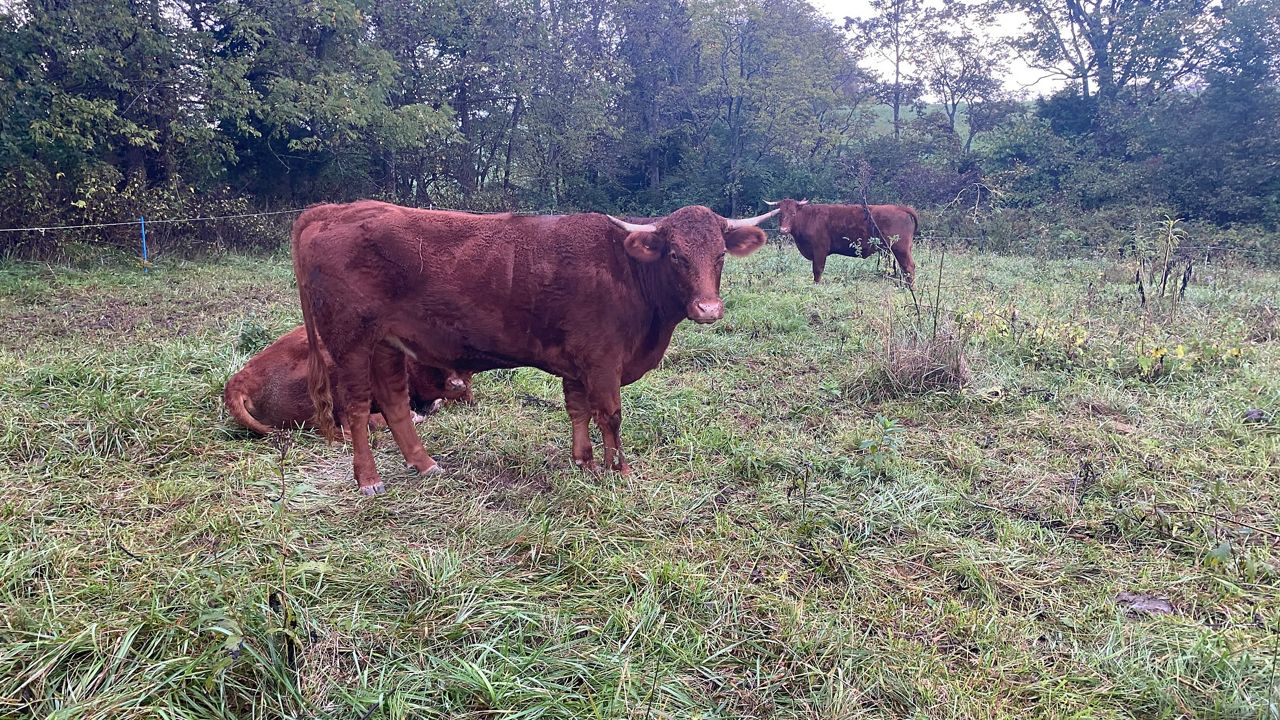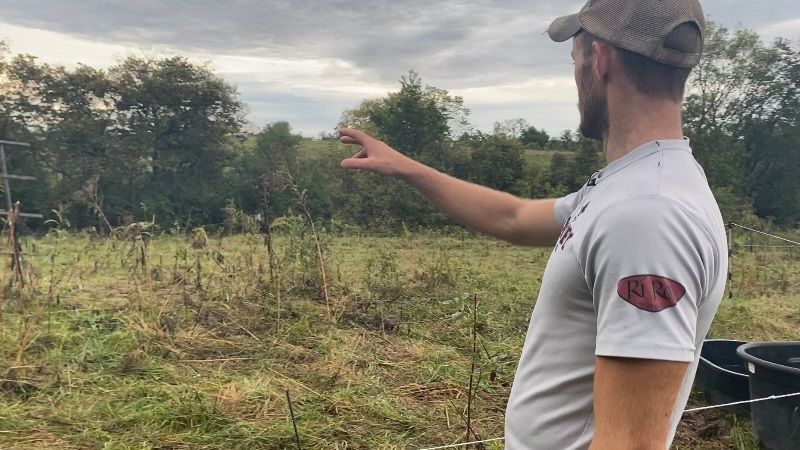SULFUR, Ky. — The most important meeting on climate change in the history of humanity is just days away. World leaders will gather in Glasgow, Scotland for the United Nations Climate Change Conference.
Rising temperatures and intense rainstorms can make things very difficult for farmers. Many are having to change up their long-established procedures to try to stay ahead of extreme weather changes. In Kentucky higher temperatures can reduce livestock productivity and heavy rains can lead to more pests and livestock diseases, according to the Environmental Protection Agency (EPA).
The Faul Family Riverside Farm isn't your typical run-of-the-mill farmstead.
“From the get go we didn't want to be conventional farmers, we wanted to do something different, something unique and that's how I found this space of regenerative agriculture, direct to consumer marketing and the success of your farm is completely in your hands,” Andre Faul said.
After hearing stories of his father who grew up on a citrus farm in South Africa, Andre Faul Jr. knew he wanted to follow in the same footsteps. Faul has now been farming on 100 acres of land since 2017.
“In essence we are grass farmers because everything we do here depends on good grass quality whether it's our grass fed beef or our grass fed land. Obviously the pigs, turkeys and chickens don't eat the grass to survive but having good soil and good grass contributes to their health,” Faul said.
The father and son duo are known for farming with nature. Shifting livestock every other day to a new area of land.

“But the whole idea is to keep them off of it so that the grass can come back. If you keep giving them a huge area where they continually graze, the grass never gets the chance to regrow, as soon as it comes up, they chomp it again,” Faul said.
A technique that not only protects the animals but keeps them healthy.
“To keep them off the manure because that's where if they stay in the same spot for too long, the manure builds up and disease starts happening and you get fly issues, flies will just ravage them and give them pink eyes and all kinds of bad things,” Faul said.
That's why the Fauls put their natural resources to use to keep their livestock as productive as possible.
“You add the manure onto the grass and then you build soil organic matter and grow more grass and then the grass absorbs the CO2 from the atmosphere and sequences it in the soil and the cycle continues,” Faul said.
Faul has found other alternatives when it comes to climate change, especially as reports show the average rainfall is increasing in Kentucky.

“When it's super wet out here we tend to bring some hay bales out and put it in these shelters so they can have something to get up on that's dry,” Faul said. “When it gets super hot, crazy temperatures, we'll try and orient these things so the wind will blow right through them and cool them down.”
By staying a few steps ahead of the weather changes, the Faul’s hope to keep farming for generations to come.
The Faul Family Riverside Farm is located in Sulphur and offers local, healthy and sustainable food for the community.



